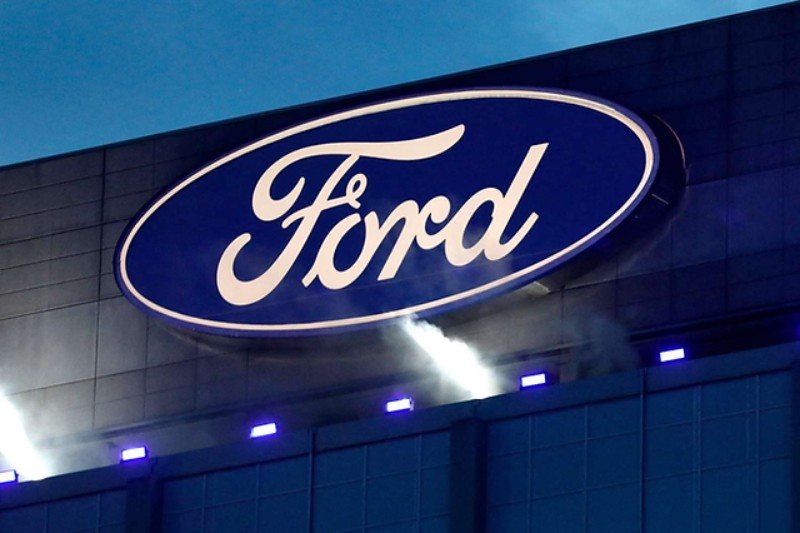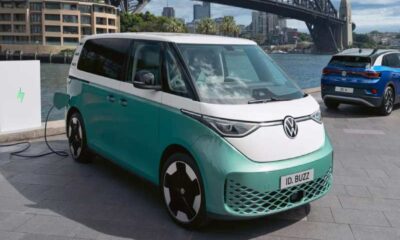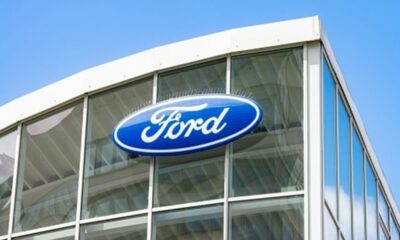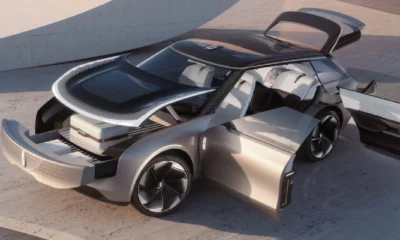Business
Ford and its Partners Choose Canada for its $900 Million Battery Material Plant

Ford Motor Co. (F.N) and a group of South Korean firms announced on Thursday that they would construct a C$1.2 billion ($887 million) plant in Becancour, Quebec, a community aiming to become a hub for the EV supply chain, to make battery materials for electric vehicles (EVs).
According to a statement from the ministry, the partnership includes South Korean companies EcoProBM (247540.KQ) and SK On Co Ltd. For Ford EVs, the facility will eventually generate 45,000 tonnes of cathode active materials (CAM) annually.
The materials are high-quality Nickel Cobalt Manganese (NCM) for rechargeable batteries that aim to increase performance and EV range, according to a separate statement from Ford.
“This cathode facility will supply the material that goes into Ford’s future EVs in North America, specifically some of our future trucks,” Lisa Drake, Ford vice president for EVs, told reporters.
Despite having operated in the nearby province of Ontario for more than a century, this is Ford’s first investment there.
The consortium will get a conditional loan of $322 million from the federal government of Canada, and Quebec will provide the same amount as a loan that is partially forgiven, according to the statement. More than 345 jobs are anticipated to be created when the factory opens in the first half of 2026.
This is the most recent in a string of announcements regarding construction in Becancour, a town of less than 15,000 people on the St. Lawrence River that is quickly emerging as a key location for the North American EV supply chain.
“This is a big vote of confidence in the (EV) ecosystem we’ve been building,” Canada industry minister Francois-Philippe Champagne told Reuters. “This is very significant for Quebec, because as you know the auto sector has been primarily investing in Ontario, but now we have GM, now we have Ford in Becancour.”
A chemical battery materials factory, whose construction was first announced last year, will see an increase in production capacity, according to General Motors Co (GM.N) and South Korea’s POSCO Future M. A facility for battery materials is also being built there by the German company BASF SE (BASFn.DE).
As the globe works to reduce carbon emissions, Canada, which has a sizable mining industry for minerals like lithium, nickel, and cobalt, is trying to woo companies involved at all levels in the supply chain for electric vehicles via a multibillion-dollar green technology fund as the world seeks to cut carbon emissions.
West of Quebec in Ontario, the center of Canada’s fossil-fuel-powered car industry, German automaker Volkswagen (VOWG_p.DE) and Stellantis (STLAM.MI), the parent company of brands like Fiat and Chrysler, are building multibillion-dollar battery plants.
West of Quebec in Ontario, the center of Canada’s fossil fuel-powered car industry with long-standing trade and production ties with the Detroit automakers, German automaker Volkswagen (VOWG_p.DE) and Stellantis (STLAM.MI), the parent company of brands like Fiat and Chrysler, are building multibillion-dollar battery plants.
Big win for Canada
Future Ford EVs, particularly trucks, will use the plant’s 45,000 tonnes of cathode active materials (CAM) annually after it opens in 2026. Ford’s automotive assembly plants in Canada and the United States will get its manufacturing.
François-Philippe Champagne, the federal innovation minister, declared in an interview that “it’s a big win for Canada.”
“We’re playing a critical role in the electrification of transportation in North America.”
Champagne stated at the news conference on Thursday that Quebec was not viewed as a major player in industries like batteries, the environment, or electric vehicles just a year ago.
“But today, we’re talking about Quebec,” he said. “Behind what you see today is a region that is emerging, a region that is positioning itself in the automotive ecosystem.”
According to Quebec’s Minister of the Economy, Pierre Fitzgibbon, this most recent investment will assist the province in being carbon neutrality by 2050.
“It’s optimistic, it’s ambitious but with these new, strong corporate links … I strongly believe that it’s doable and that we’re quickly moving in the right direction,” he said.
Ford is the second player in the automotive industry to select Bécancour as the location for a battery plant. GM declared its ambition to establish a facility there last year, and the company intends to begin producing CAM there in 2025.
-

 Business4 weeks ago
Business4 weeks agoHow to fill MSME Form 1? Step-by-Step Guide
-
Business4 weeks ago
From Marine to Chief: The Leadership Journey of Sean Mannix
-

 Gadget3 weeks ago
Gadget3 weeks agoAfter Grand Success on BLDC Ceiling Fan, Eff4 Is Launching Smart Bulb
-

 Festivals & Events4 weeks ago
Festivals & Events4 weeks agoGoogle Celebrates Cherry Blossom Season with Animated Doodle
-

 Business2 weeks ago
Business2 weeks agoPrakash and Kamal Hinduja: Driving Social and Environmental Change
-

 Sports4 weeks ago
Sports4 weeks ago2025 NASCAR Craftsman Truck Series Baptist Health 200 at Homestead-Miami Speedway: Race Preview, Prediction, Schedule, Entry List, Drivers to Watch and How to Watch
-
Education3 weeks ago
Fred DuVal: University Leadership as a Critical Resource for Climate Change Research and Life-Saving Solutions
-

 Health2 weeks ago
Health2 weeks agoThe Hinduja Brothers Commitment to Global Health: Empowering Communities Across Borders























